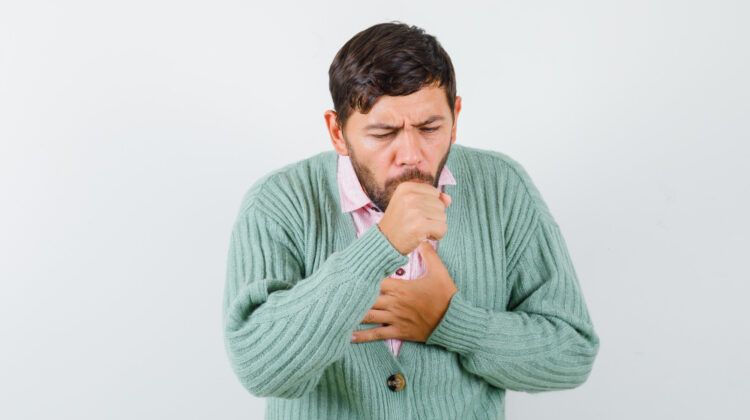Chest Cold: What Are the Signs and Treatment?

A chest cold, commonly known as acute bronchitis, is a respiratory condition that affects the bronchial tubes, causing inflammation and often resulting in a persistent cough. While a chest cold is usually a self-limiting condition, understanding its causes, symptoms, and appropriate treatment is crucial for managing discomfort and preventing complications.
What is Acute Bronchitis, or a Chest Cold?
Acute bronchitis, colloquially referred to as a chest cold, is the inflammation of the bronchial tubes – the air passages that carry air to the lungs. This inflammation is often triggered by a viral infection, most commonly the same viruses responsible for causing colds and the flu. Acute bronchitis is distinct from chronic bronchitis, which is a more persistent and serious condition often associated with long-term tobacco smoking.
What are the causes of chest cold?
Viral infections are the main cause of chest colds, and rhinoviruses, influenza viruses, and respiratory syncytial virus (RSV) are the most frequent offenders. When an infected individual coughs or sneezes, respiratory droplets can spread these viruses, which are extremely contagious. Furthermore, contracting the virus might result from touching infected surfaces and then touching the face.
Acute bronchitis can also result from other reasons such as air pollution, chemical fumes, and exposure to irritants like tobacco smoke. These irritants have the potential to impair immunity and increase a person’s susceptibility to viral infections.
What are the symptoms of chest cold?
The symptoms of a chest cold typically begin a few days after exposure to the virus. Common symptoms include:
1.Cough: A persistent cough is one of the hallmark symptoms of acute bronchitis. The cough may start dry and later produce mucus.
2.Shortness of Breath: Inflammation of the airways can cause difficulty breathing, especially during physical exertion.
3.Chest Discomfort: Individuals with a chest cold may experience chest tightness or discomfort.
4.Fatigue: The body’s immune response to the infection can lead to fatigue and overall weakness.
5.Sore Throat: Irritation in the throat is common, contributing to a sore throat.
6.Runny or Stuffy Nose: Some individuals may experience nasal congestion or a runny nose.
When to get medical care:
While chest colds are typically self-limiting and do not require medical intervention, there are instances where seeking medical care is advisable. Consult a healthcare professional if:
1.Symptoms Persist: If symptoms persist for more than three weeks or worsen over time, medical attention is warranted.
2.High Fever: A persistent high fever may indicate a more severe infection and should be evaluated by a healthcare provider.
3.Breathing Difficulties: If shortness of breath becomes severe or is accompanied by chest pain, seek immediate medical attention.
4.Chronic Health Conditions: Individuals with pre-existing conditions such as asthma, COPD, or heart disease should consult a healthcare professional for guidance.
What is the treatment for a chest cold:
The treatment for a chest cold is primarily supportive, aimed at relieving symptoms and allowing the body to recover. Common treatment strategies include:
1.Rest: Giving the body adequate rest helps conserve energy for the immune system to fight the infection.
2.Hydration: Staying well-hydrated helps loosen mucus, making it easier to cough up. Warm beverages, such as herbal teas, are particularly soothing.
3.Humidifier Use: Using a humidifier in the bedroom can add moisture to the air, easing cough and congestion.
4.Over-the-counter Medications: Over-the-counter cough suppressants and expectorants may provide relief. However, their use should be discussed with a healthcare professional, especially for individuals with underlying health conditions.
How to relieve yourself:
Apart from medical treatment, several self-care measures can help individuals feel better during a chest cold:
1.Warm Saltwater Gargle: Gargling with warm salt water can soothe a sore throat and reduce irritation.
2.Hot Showers: The steam from a hot shower can help alleviate congestion and ease breathing difficulties.
3.Use of Lozenges: Sucking on throat lozenges or hard candies can help soothe throat irritation.
4.Proper Nutrition: Eating a nutritious diet supports the immune system’s function and aids in recovery.
Children and Over-the-Counter Medicine:
It’s crucial to exercise caution when using over-the-counter medications, especially in children. Consult a healthcare professional before giving any medication to children, as certain products may not be suitable for their age group. Always follow recommended dosages and guidelines to ensure their safety.
Prevention of chest cold:
Preventing the spread of chest colds involves adopting good respiratory hygiene practices:
1lHand Hygiene: Regular handwashing with soap and water for at least 20 seconds can prevent the spread of viruses.
2.Cough Etiquette: Cover the mouth and nose with a tissue or the elbow when coughing or sneezing to prevent the release of respiratory droplets.
3.Avoiding Close Contact: Minimize close contact with individuals who are sick, and avoid large crowds, particularly during the flu season.
4.Vaccination: Annual influenza vaccination is recommended to reduce the risk of contracting the flu, a common precursor to chest colds.
Even though they are frequently painful, chest colds can usually be treated with the right care and attention. Knowing the origins, symptoms, and available treatments can enable people to take charge of their health. Chest colds can be lessened and general health can be enhanced by taking preventive measures and getting medical help as soon as necessary.
